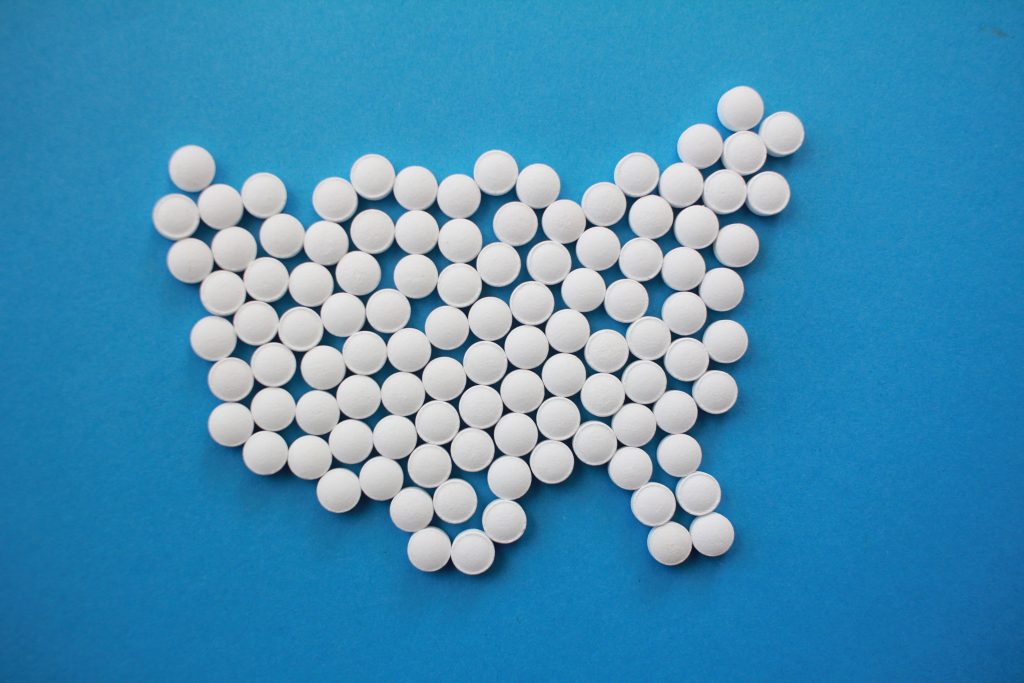The opioid epidemic in America continues to be a national crisis. In 2017, a person’s likelihood of dying from an opioid overdose exceeded the risk of dying in a motor vehicle crash for the first time in history. The National Institute on Drug Abuse reports that more than 130 people die every day from overdose. In states with the highest death rates from drug overdoses, the number of deaths from drug overdose were five times higher than the number of alcohol-related deaths and approximately three-times higher than suicide rates.
As high as twenty percent of people taking prescription pain medication will develop an addiction and 45 percent of heroin users started with a prescription opioid addiction. All sectors of the healthcare system are feeling the effects of the opioid crisis, with more recent attention being drawn to cardiology.
Opioid Addiction and Cardiovascular Disease
Recent studies have linked abuse of prescription opioids and IV drug use to negative side effects on cardiovascular health. Opioids can increase the risk of developing an irregular or rapid heartbeat, known as atrial fibrillation (AFib). Other negative effects include hypotension, heart attack and opioid-induced heart failure. Intravenous (IV) drug use has detrimental effects on the body’s cardiovascular system. After numerous injections, the veins and blood vessels become swollen and collapse causing blood flow through the vein to cease. When this happens, IV drug users are likely to inject the needle deeper and may hit an artery which can result in an inadequate blood supply to the heart.
The opioid epidemic has also correlated with a national rise in heart infections throughout the United States. Doctors believe the opioid epidemic has single-handedly changed the epidemiology of infectious endocarditis (IE). In areas hit hardest by the opioid crisis, hospitals have reported that hospitalizations for IE have hit a record high.
IE is a bacterial infection of the heart’s valves and is the result of bacteria entering the blood stream. The infection is curable with the use of antibiotics, but if left untreated, it can cause permanent organ damage, heart failure, and even death. Symptoms include chest pain, fever, chills, nausea, and pain in the joints and muscles. Traditionally a rare disease that affected older adults already suffering from heart disease, IE is now affecting younger populations due to the rise in injection drug use and presenting a new form of the infection known as injection drug-use associated IE (IDU-IE). Researchers believe that heroin needles often carry the bacteria that causes the infection, so as the rates of opioid abuse and heroin use continue to rise, so do the rates of IDU-IE.

A Call to Action for Cardiologists
Cardiovascular professionals should be well informed of the signs and symptoms of drug abuse, especially in patients presenting IE. IDU-IE patients are not traditional cardiology patients and often don’t present with typical IE symptoms. IDU-IE patients may be younger, have a persistent fever, and have pulmonary infiltrates on their chest X-ray or heart structure test.
The challenge for cardiologists is not only accurately diagnosing IDU-IE patients, but also treating both the infection and the substance abuse disorder behind it. Dr. Kirk N. Garratt of Christiana Care Health System’s Center for Heart and Vascular Health believes that tackling the dual epidemic of opioid abuse and IDU-IE will take a cross-disciplinary approach – combining cardiology, infectious disease, addiction medicine, community medicine and social services. By combining expertise across fields, cardiologists treating patients with IDU-IE can not only prevent future infection, but future drug abuse as well.
In response to the opioid crisis, cardiologists can raise awareness about the opioid epidemic’s effect on heart health and become more educated on the best ways to manage patient’s pain in ways that do not include opioids. Additionally, the U.S. Department of Health and Human series has identified five priorities for health professionals to help address the national health emergency of the opioid crisis.
- Improving access to treatment and recovery services
- Promoting use of overdose-reversing drugs like naloxone
- Strengthening our understanding of the epidemic through better public health surveilling
- Providing support for cutting edge research on pain management and addiction
- Advancing better practices for pain management
More specifically, cardiologists can assist patients with IDU-IE by referring them to rehabilitation centers after they have received treatment for their infection.
To learn more about all aspects of cardiovascular health, visit CVG’s blog or make an appointment with one of our doctors at CVG today.













